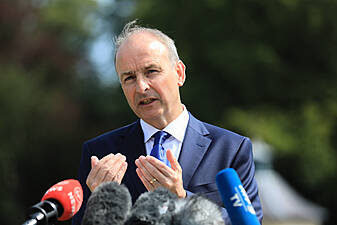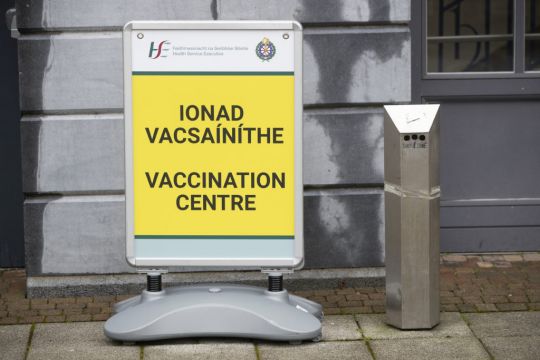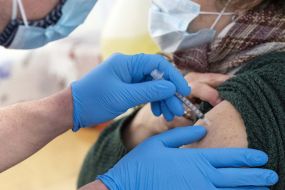More than double the number of people have been vaccinated against Covid-19 in Northern Ireland compared to the Republic, the latest figures show.
This comes as the chair of the British Medical Association (BMA) in the North said the Republic was weeks behind in its vaccination programme and called for co-operation to ensure a “single-island approach” to curtailing the pandemic.
Just over 171,000 people have now received at least one dose of a Covid jab in the Republic, compared to more than 391,000 people in Northern Ireland. This equates to about 3.4 per cent of the population in the South, and 20.7 per cent in the North.
The UK is pursuing a different vaccination strategy to that in Ireland and the European Union, opting to substantially increase the time between the first and second doses of the vaccine.
The move, which has attracted some criticism, has allowed the UK to accelerate its programme and inoculate more people with limited supplies.
However, this means the number of fully vaccinated people, those who have received both doses, is lower in Northern Ireland.
More than 89,000 people (1.9 per cent of the population) are fully vaccinated in the Republic compared to almost 29,000 (1.5 per cent) in the North.
Speaking about Ireland's vaccine progress, Dr Tom Black, chair of the BMA in Northern Ireland, called for a particular focus from both governments on Border counties where, he says, rates of infection are worst.
Describing it as “a race of vaccination against the virus”, the Derry-based GP said the Republic is “a bit behind us, but only a couple of weeks behind us, and they will catch up with us”.
“But we do need to look at this very carefully as a one island problem because we know the Border counties – in Armagh, in Monaghan and Cavan – are those areas with the most infection, the highest rate of infection, and we know that the virus doesn’t respect any borders.

“So we should work closely with our cousins in the Republic of Ireland to make sure there is a single-island approach to this, just as we have a single UK approach.”
Dr Black said he was “optimistic” about restrictions in the North being relaxed by the summer.
He credited “better access” to Oxford/AstraZeneca vaccine supplies as well as the establishment of seven large vaccination centres for the North’s progress in inoculating the public.
Speaking on BBC Radio Ulster on Sunday, Dr Margaret Harris, of the World Health Organisation (WHO), praised the North’s approach as an “amazing job” and “a great model for everyone else”.







